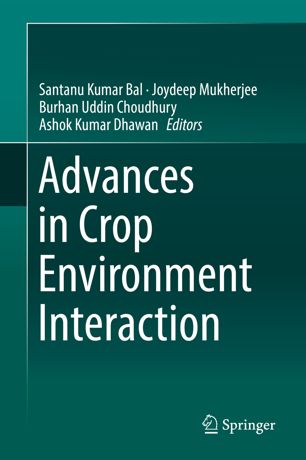

Most ebook files are in PDF format, so you can easily read them using various software such as Foxit Reader or directly on the Google Chrome browser.
Some ebook files are released by publishers in other formats such as .awz, .mobi, .epub, .fb2, etc. You may need to install specific software to read these formats on mobile/PC, such as Calibre.
Please read the tutorial at this link: https://ebookbell.com/faq
We offer FREE conversion to the popular formats you request; however, this may take some time. Therefore, right after payment, please email us, and we will try to provide the service as quickly as possible.
For some exceptional file formats or broken links (if any), please refrain from opening any disputes. Instead, email us first, and we will try to assist within a maximum of 6 hours.
EbookBell Team

4.1
90 reviewsAgriculture is currently facing multi-faceted threats in the form of unpredictable weather variability, frequent droughts and scarcity of irrigation water, together with the degradation of soil resources and declining environmental health. These stresses result in the modification of plant physiology to impart greater resilience to changing abiotic and biotic environments, but only at the cost of declining plant productivity. In light of these facts, assessing the status of natural resource bases, and understanding the mechanisms of soil-plant-environment interactions so as to devise adaptation and mitigation approaches, represent great and imminent challenges for all of us. In this context, it is essential to understand the potential applications of modern tools, existing coping mechanisms and their integration, as this will allow us to develop suitable advanced mitigation strategies.
From a broader perspective, the book deals with crop-environment interaction in the context of changing climatic conditions. To do so, it addresses four major aspects:
Understanding the mechanism of carbon dynamics in the soil-plant-environment continuum; greenhouse gas fluxes in agricultural systems; and soil properties influenced by climate change and carbon sequestration processes.
Mitigation and management of the photo-thermal environment to improve crop productivity; soil health under variable climate; reducing agro-ecosystem evapotranspiration losses through biophysical controls; and heat stress in field crops and its management.
Studying the impact of climate change on biotic environments; insect-pest interactions; manifestations of disease; and adaptation strategies for island agro-ecosystems.
Innovative approaches to assess stress impacts in crops, such as crop modeling, remote sensing, spectral stress indices etc.
The book presents a collection of contributions from authoritative experts in their respective fields. Offering young researchers new perspectives and future research directions, it represents a valuable guide for graduate students and academics alike.